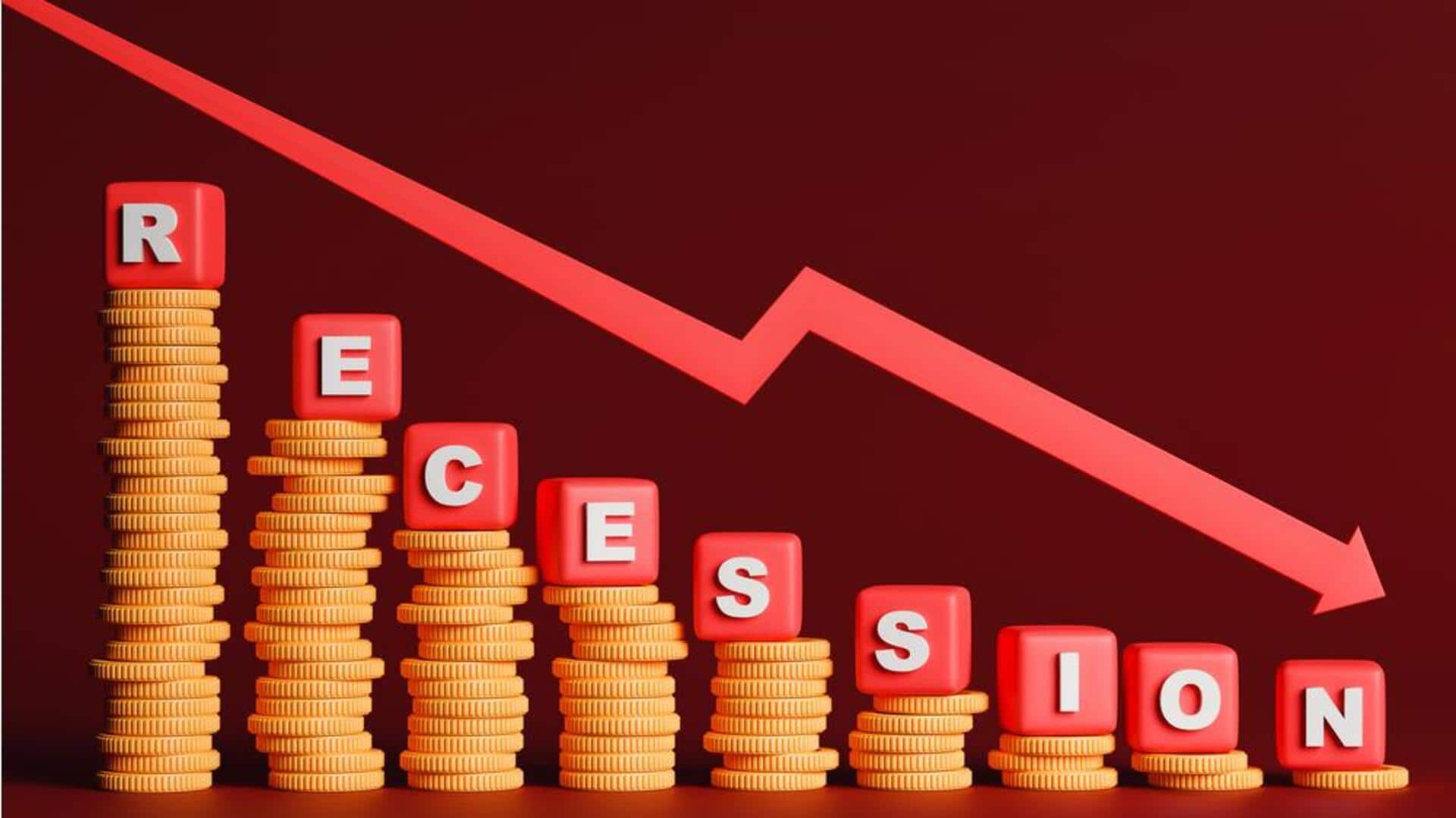
What is recession and how it impacts you
What's the story
Two of the biggest economies in the world—Japan and United Kingdom—have officially entered recession. When an economy declines for at least two consecutive quarters, it technically enters a recession. While the Japanese economy shrunk by 3% and 0.4% in two consecutive quarters, the UK's GDP contracted by 0.1% and 0.3% in its last two quarters. Recession ultimately affects people as job opportunities reduce, manufacturing slides, retail sales decrease, wages get affected, and credit is tightened.
Causes of recession
What causes a recession?
A recession or a slowdown of the economy can be due to a variety of factors and as manifested by the situation in Japan and the UK, consumer spending is a huge factor. However, geopolitical crises, wars, and supply chain disruptions as seen during the COVID-19 pandemic can also cause a recession. For an economy to continue growing, a fine balance has to be maintained between supply of credit and inflation—a general increase in the prices of goods and services.
Balancing act
When inflation leads to recession
Central banks, like the Reserve Bank of India, try to maintain a sensitive equilibrium of growth and demand. If the price of goods surpasses tolerable limits, the central banks raise interest rate (called repo rate) making it hard to avail loans. This leads to a reduction in market prices. However, over a prolonged period, this measure often leads to a recession as businesses find it harder to borrow money and their growth dips, causing a slowdown in economic activity.
Negative interest rates
The curious case of Japan
The Bank of Japan has been in the limelight for adopting a rare policy which involves negative interest rates. This essentially means that the bank issuing loans pays you to borrow money. Japan introduced this experiment in 2016 to stimulate consumer spending and demand. It was launched with an intent to boost inflation but the results have not been satisfactory as Japan still has a low inflation rate of 3%. A 4% inflation is generally considered healthy for the economy.
Deflation
When deflation leads to recession
When prices continue to fall and the inflation rate goes negative, it is known as deflation. Falling prices can create a negative cycle. Consumers may postpone purchases in hopes of getting better deals later. This leads to decreased demand for goods and services. Lower demand forces businesses to reduce production and cut costs, affecting economic activity. Extended periods of inflation and deflation can lead to recession and central banks battle on both fronts to steer clear of recession.
Battling recession
How should you prepare for a recession?
Recessions are cyclical and don't last forever. While governments step in to help by offering unemployment benefits or giving businesses loans, you as an individual can also prepare for this economic slowdown. Ensure financial safety by having an emergency fund. Unnecessary expenses on entertainment and shopping should be curbed. Working professionals should assess the future of their expertise and evaluate it from a market perspective. Impulsive investments should be avoided and a secondary source of income should be planned.